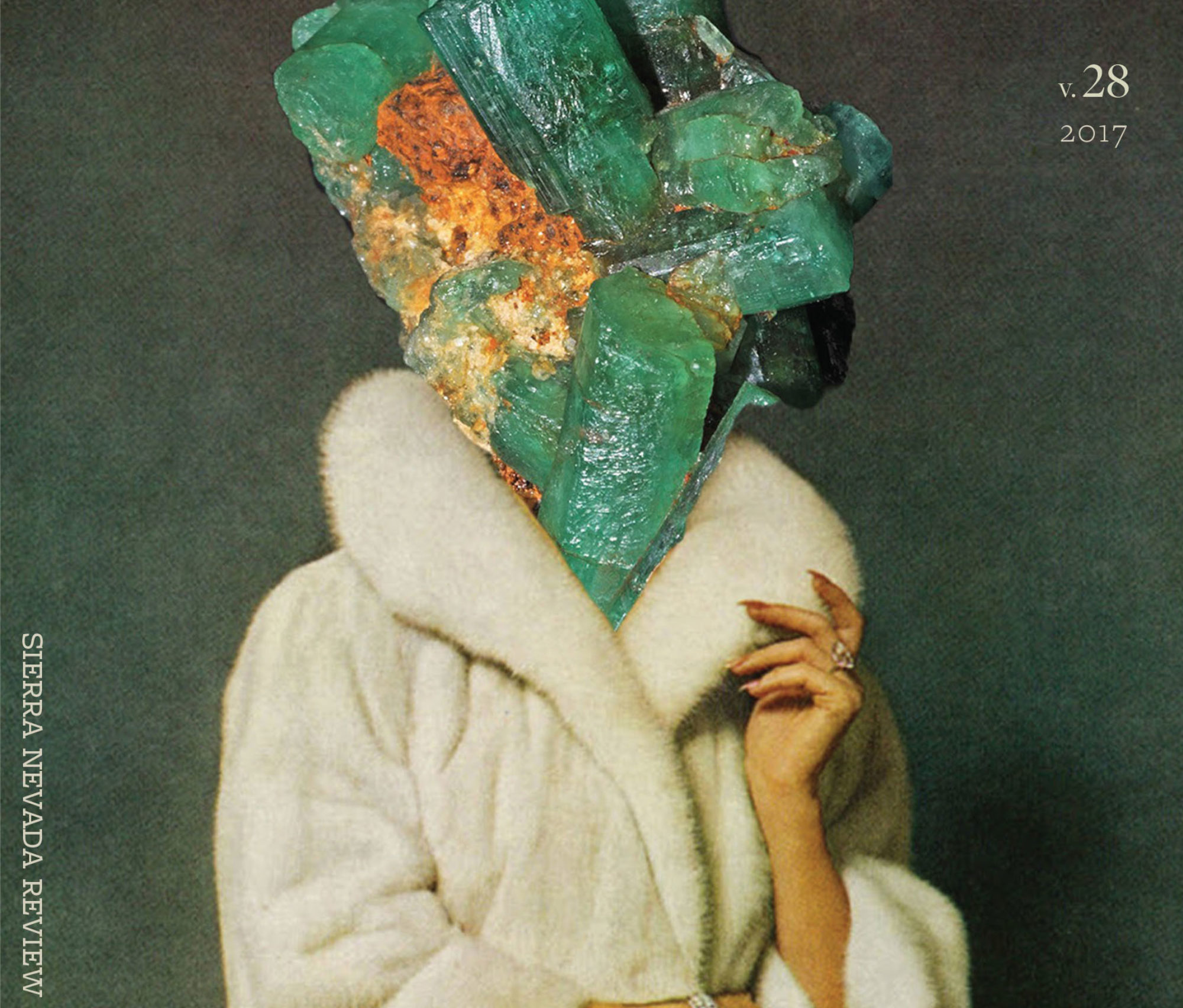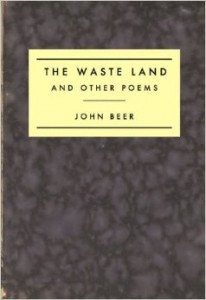Searching the Rubble: The Waste Land and Other Poems by John Beer
Bryce Bullins
2010
Poetry
$14.00; 110 pages
Ann Arbor: Canarium Books
ISBN 978-0-98223796-4-9
The audacity of naming your book after T.S. Eliot’s masterpiece is staggering. Mark that audacity a notch higher when the cover of the new book is a facsimile of the original, appearing identical in all aspects spare the author’s name. It sets up an expectation so high that if the mark is not reached, utter disappointment and even a touch of anger may surface. It’s a good thing then that John Beer’s latest collection hits that mark and goes a step further, serving up a remarkable example of contemporary poetry both in style and content.
Beer doesn’t try to copy Eliot as much as he tries to reframe the foundations of “The Waste Land” for a new age. Structurally, both poems contain five distinct sections and tones of voice and are closely tied to one another in overall arc and theme. Beer uses just as many allusions as Eliot did, though the footnotes are lacking (more on that later). Beer avoids the lyricism of Eliot in favor of more casual, though no less direct, prosody (in a way, Beer’s brute address creates a kind of lyricism in itself). Beer seems to take a slight jab, albeit in jest, at Eliot in the second part of his “Waste Land”: “O O that T.S. Eliot / he’s such a shrinking violet / and if you think I sigh a lot / try life with T.S. Eliot.” Beer self-deprecatingly admits that his “Waste Land” doesn’t have the same weight of Eliot’s but in the next two lines, Beer iterates quite subtly that “…you don’t need to be a hero.”
In truth, Beer’s “Waste Land” does carry weight and heft to it. Rather than writing through the lens of a world ravaged by the end of the first World War, Beer writes through the gorilla glass of the 21st century and the end of the most protracted conflict in U.S. history.
Beer’s “Waste Land” is our reflection in that glass, staring back at us, sometimes mockingly, sometimes sincere, but always with a sharpened edge.
The anaphora of the unknown city at the beginning of the poem is the most strikingly obvious example of this new world in that the city itself is never mentioned (though alluded to in the title as either Chicago or possibly New Orleans) but the vague descriptions given to the city could be for any place on this planet and speaks to the ever encroaching globalization in which everything becomes so blurred and hegemonic that scarcely any identity yet remains. It’s simultaneously foreign and familiar, cultivating a sense of unease but utter captivation with the words on the page that seem to sink into our marrow the more we read them.
The other poems that make up the “Other Poems” section of Beer’s book are equally exceptional in their own right. Punctuated by dry wit and a practiced tightness, each poem flows smoothly and interconnects with one another in a showcase of excellent book layout. For example, the three poems entitled “Flowers”: each begins the same way, verbatim, followed by a new situation for the couple in the poem. The emotions that these situations bring to the surface are reinforced and expanded upon over the pieces that sit in between each version of “Flowers” creating an overarching narrative. It’s a fascinating style choice and one that I found worked quite well.
“Sonnets to Morpheus” is a section rife with humor (because the Morpheus in question is not that of Greek myth but the Morpheus of the Wachowskis Matrix film trilogy) and seriousness. Beer sprinkles lines taken directly from the films such as Neo’s now famous line “I know kung fu” and pairs it with beautiful prosody such as “Their music fell into my heart / like an unexpected taxi” and “…The children line up / beside the pond. They never realize / we poison them with their own reflected breath.” It is a testament to Beer’s ability as a poet that he is able to combine such disparate topics together yet create something thoroughly enjoyable and thought provoking.
The only thing baffling about Beer’s collection is that he leaves out the footnote markings for the notes that appear in the back of book. For a book that is trying to imitate Eliot’s original, it comes as a glaring omission. However, rather than vexed or annoyed with the discovery of the notes, it made me thirsty to revisit Beer’s words immediately, catching the nuances and allusions that had been missed on a first reading. Like Eliot before him, Beer can be read for the sheer aesthetics of the line or for the expertness of his craftwork that make those aesthetics possible.
Beer’s language and the pure emotive feeling his poems exude make each one feel as if it is city unto itself. They are built from the ground up to be a marvel and each one feels different than the last, crafting a truly unique voice over the entire body of work. Of course there are thematic elements that tie them all together, just as there are common similarities between cities that make them feel the same, but it’s the subtle changes and the atmosphere of each that makes them special and significant in their own right.
Bryce Bullins is a first year graduate student focusing on poetry but has worked previously on the Sierra Nevada Review as an undergraduate student. He received his BA in English with a minor in Music from Sierra Nevada College in 2014.



My followers on GPLUS would love this blog. Is it okay if I pass it on to them?